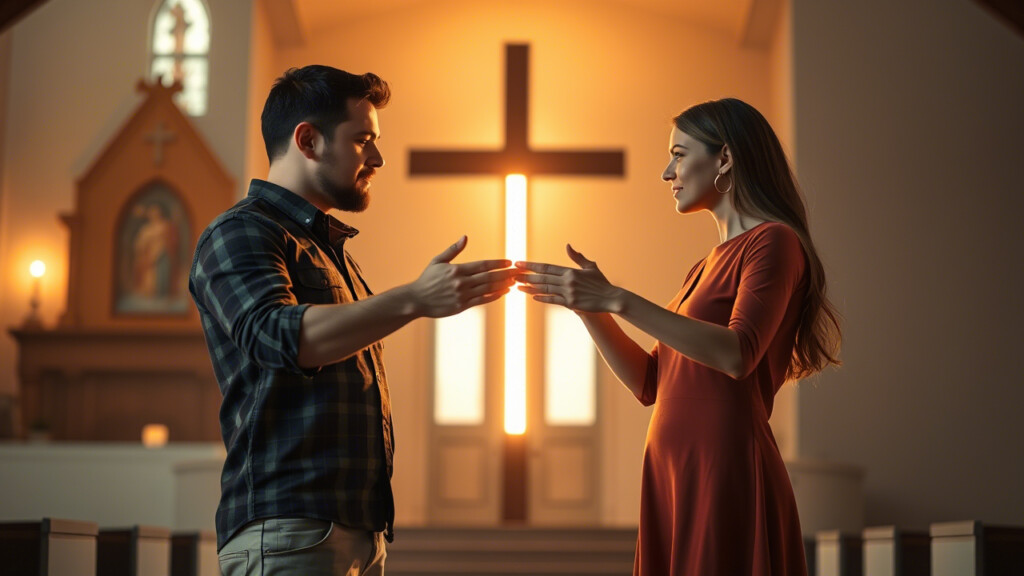Love is a sacred connection between two people, but when religion comes into play, it is no longer just their story. Interfaith marriage is not simply about two individuals coming together; it is also about blending two cultures and belief systems. So, when love and religion clash, what is the right choice?

Social Pressure: When Faith Determines Marriage
1. Family and Community: The Invisible Chains
For many people, religion is not just a personal faith but also a moral foundation for their family and society. This is why interfaith marriage is often seen as a break from tradition.
- Families impose conditions: Some parents require their children to marry within their faith. This is especially common in religions with strong communal ties, such as Christianity, Islam, and Judaism.
- Pressure from the community: It is not just families—friends, neighbors, and religious institutions can also exert pressure, making one feel the need to convert to be accepted in marriage.
- Fear of isolation: In many cases, those who enter an interfaith marriage may be seen as “betraying” their faith, leading to social exclusion or even being disowned by their community.
2. Religious Conflicts in Love: When Beliefs Clash
For those raised in a religious environment, faith shapes their values and worldview. Therefore, entering an interfaith love relationship can lead to religious conflicts in love, affecting various aspects of life, such as:
- Views on gender roles: Some religions have very traditional perspectives on family roles, while a non-religious partner may have a more modern approach.
- Raising children: Will they follow the father’s or the mother’s religion? Or should they be free to choose? This is one of the most common sources of conflict in mixed-faith unions.
- Religious practices in daily life: One partner may be used to praying, fasting, or participating in religious ceremonies, while the other does not, leading to lifestyle differences.
Why Do Some People Change Their Religion for Love?
When faced with the choice between interfaith love and faith, many people choose to convert to be with their loved one. The most common reasons include:
- Fear of losing their partner: Not everyone is willing to sacrifice love for religion, so they choose to adapt to their partner’s beliefs.
- Fear of family rejection: In many cultures, going against the religious expectations of one’s family can lead to alienation or disownment.
- Desire for a stable family: Some people believe that sharing the same faith can help maintain family harmony and prevent religious conflicts in love.
However, this raises an important question: Is changing one’s religion for love truly the right decision?
Religious Freedom in Marriage: Can It Be Balanced?
In a relationship, religious freedom in marriage is crucial to ensuring that both individuals can maintain their identities without feeling forced to change. Some couples have successfully balanced love and faith by:
✅ Respecting differences: Not pressuring each other to change their beliefs.
✅ Agreeing on religious matters: Deciding in advance how to handle issues such as children’s religious upbringing and family traditions.
✅ Seeking premarital counseling: Consulting professionals to find solutions that allow both partners to coexist without sacrificing their faith.
Choosing Love or Religion: What Is the Right Decision?
When faced with the choice between interfaith love and faith, there is no absolute right or wrong answer. Each person’s decision depends on their beliefs, values, and circumstances.
💡 If one must completely change who they are to sustain a relationship, is it truly love?
Some people may be willing to sacrifice their faith for love, while others believe that religious freedom in marriage is more important than the relationship itself. The key is for both partners to find a common path where neither feels they have lost themselves.
📌 What do you think? Would you choose love or religion? Share your thoughts!
